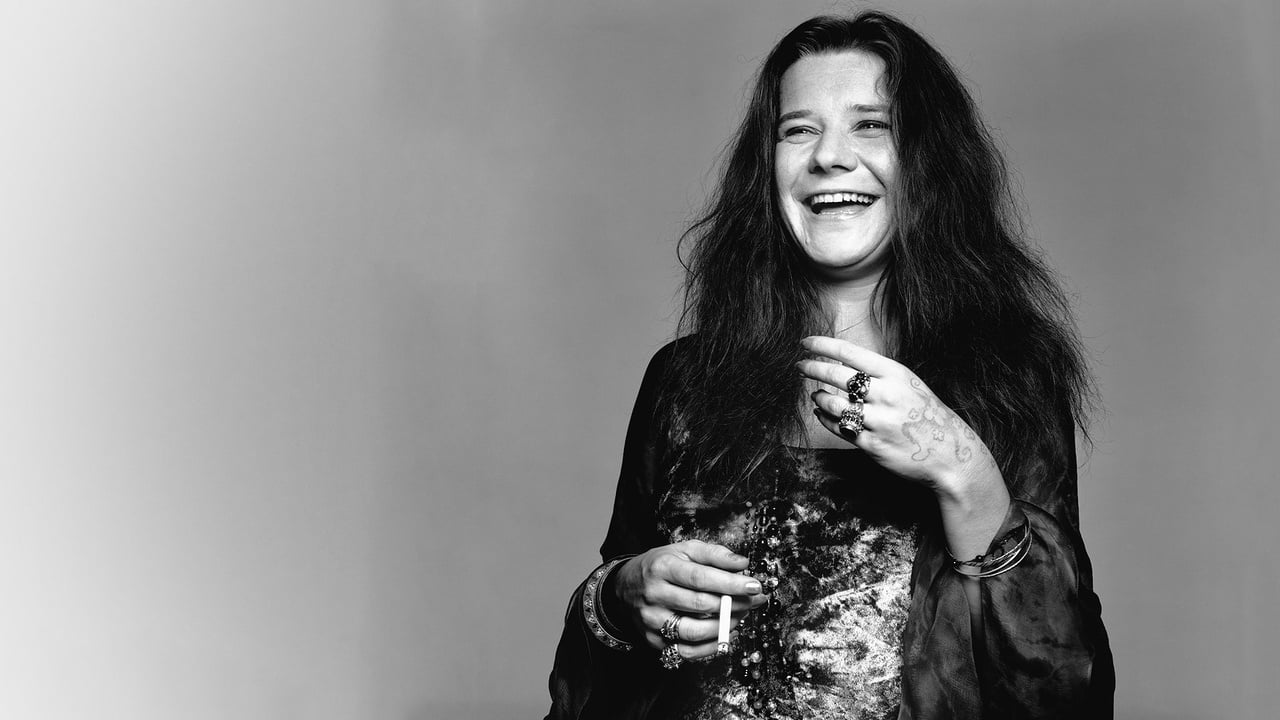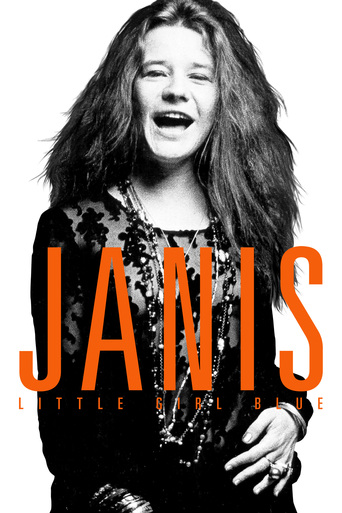

Some things I liked some I did not.
... View MoreWhile it doesn't offer any answers, it both thrills and makes you think.
... View MoreIt's simply great fun, a winsome film and an occasionally over-the-top luxury fantasy that never flags.
... View MoreI enjoyed watching this film and would recommend other to give it a try , (as I am) but this movie, although enjoyable to watch due to the better than average acting fails to add anything new to its storyline that is all too familiar to these types of movies.
... View MoreIt has not been a different life than the other 27's. It has not been a different life than other real stars. Filmin structure was not good. I guess they did it without much effort. He did not elaborate after Janis's death. No special music was made for the film. I did not like your director very much. The film has not succeeded in dramatic places as well. It was not nice without Janis. There was an air of sadness. Although a girl who was excluded in her childhood and adolescence was given a nice star, she had not been given any details when necessary.
... View MoreMaybe it's just me, but I can't seem to get enough Janis. I have read a biography on her and watched other films, as well as attended the stage play "Love, Janis" and I'm always wanting for more. I rated this a nine because a near perfect documentary about Janis would be at least four hours, imho. There could have been more interviews with her sister and brother and others who knew her intimately. It focused on her person and her heart more than other things I've seen. I was only ten years old when she died and my family was as straight laced as Janis' and Port Arthur, so I don't remember any fan fare regarding her. I didn't fully experience her music until I was eighteen and I fell hard as a Janis fan.Interesting point to younger generations is that the media always focuses on the San Francisco scene when it talks about the 60's and the hippy era, when most of the rest of the world at the time was really closer to Port Arthur. Strongly recommend this gem for any Janis fan. You won't be bored and you will find another little piece of her heart you may not have known about before. I imagined that she had a big heart for people in general, and this documentary solidified that belief.A comment in the film about the level of emotion she reached in her singing was at a high price and that was a prefect summation of the art that was Janis Joplin.
... View MoreJanis Joplin was sadly one of many rock stars to die young after overdosing on drugs. Unfortunately, this documentary is rather short on insight into who she was and why her life turned out the way it did. We're told she had a tough childhood, and then quickly, we're told how as a very young woman she ran away to San Francisco, became a singer and an addict, and nearly died. Yet all this is covered in just fifteen minutes; her career once famous fills out the rest of the programme, yet it might seem arguable that in a sense, the most important things in her life had already taken place before this began. There's also little discussion of her musical abilities; a lot about her personality and how she gave herself to her singing, but if her music doesn't move you, there's not a lot of dispassionate explanation here. A string of talking heads tell us how extraordinary, how full-of-life Janis was; but having watched them all, I still didn't feel like I knew her at all.
... View MoreNostalgia has no limit, no limits, absolutely none. It is in fact the frontier to dreams and the future, no matter how you look at it. With no nostalgia there is no imagination – nothing new under the sun except new assembly of old, eternal, ever present emotions.And emotional you have to be and get with this invocation of Janis Joplin.It was the dense and tumultuous time of "Fritz the Cat" (1972) and "Zabriskie Point" (1970). Three great artists and performers among the most innovative minds of their time, Jimi Hendrix (1942-1970), Janis Joplin (1943-1970) and Otis Redding (1941-1967) died, two of an overdose and one in a plane crash. What a loss.The only woman in that triad, who was not the first woman in rock-and- roll in spite of what is said in the film, was the direct white heiress of blues, jazz and black music, all represented by Aretha Franklin (1942-and still living and kicking, and even making Obama wax sentimental in public) who was a black woman in this field before Janis Joplin. The film does mention her and the fact she was the model, the inspirational muse of Janis Joplin, which made Janis Joplin second in this music, even if she was the first white woman.What did Janis Joplin contribute to the world of modern amplified polyrhythmic music? A lot, indeed a lot, even more than just a plain lot.She had very hard, realistic and powerful lyrics that exposed society the way it was felt and suffered by young people in the 1960s and early 1970s. She had a singing style and voice that were unique at the time among women and first of all white women singers. She was possessed in her music by hope for sure, but with the conscious certainty that this hope would be betrayed, and it was of course, naturally and without any failure. We can always count on one thing from this rotten world we live in: it will betray our hope, our hopes and even our plain submissive obedient and subservient wishes. And betrayal is the major master word of this hell of a life we have to live through. In spite of the flashes of bliss from time to time when an emotion is responded to emotionally, when our love is received and shared with pure love and not short term greed or lust.It was betrayed by the use of drugs that made the hopeful forget the world cannot change in the proper direction, in the direction of human freedom, if you exit it by artificial means into virtual dreams of psychedelic freedom that turned into nightmares, like in the film "More" (1969) or those I have already quoted. That means the world can only change in the proper direction if you remain conscious and united towards that objective that you in no way control but onto the outcome of which you can weigh and even be of some influence by making your collective parameter heavier in front of the millions of other parameters that dictate history. Janis Joplin could be one of those who mobilized millions of individuals into pushing history in the right direction, which did not mean left or right, but right and not wrong. In the countries where they twinned up right with left and not wrong, they were made the slaves of decisions taken by others and of cosmic phenomena beyond any human control.Betrayed it was by the use of violence and here the film is silent about the Black Panthers and their being systematically killed by the dozens in Chicago or other places. And that's what one should only care about in that period: the systematic repression of any protest around and after 1968. No allusion to the assassination of Martin Luther King and Senator Robert Kennedy. No mention of the Vietnam War and the millions of people killed or maimed over there in the name of democracy and freedom for – and only for – the Americans and maybe here and there the West reduced to its anticommunism of Mathuselah's ancient times. And that was then "Good Morning Vietnam" (1987) that will take twenty years or so to come out of its Pandora's box of napalm and other green berets' adventures, capers, brutality and barbarity.Betrayed by all sorts of crooked, more or less crooked, rather more than less crooked, politicians from A.B. Johnson to Richard Nixon, via Spiro Agnew; and Ronald Reagan was just in the near future. There the worst part is that this systematically warped democracy enables the majority of those who want tranquility and no disruption in their everyday life and comfort, be they favorable to change or not, to always have the last word. The last reform of importance was the 26th amendment lowering voting age from 21 to 18, ratified in 1971, though not the lowering of drinking age and a few other age limits of that type, like being able to enter the music "saloons" or music bars on Bourbon Street in New Orleans and many other places where the best music was performed. It did not change anything in the logic of the political system, hence the social dependence we all cling to. And Nixon was reelected in 1972 by all these young 18, 19 and 20 year old voters. The debate was raging about this lowering of voting age from what I remember when Janis Joplin was at the highest point of her stardom just when she "decided" to OD in a motel room, alone.You can make a star out of a person but that person's solitude is even greater than before because stars are NOT dancing together. And what's more these stars are black stars and we all know what happens to black stars that could be starry star-like black holes.Dr Jacques COULARDEAU
... View More